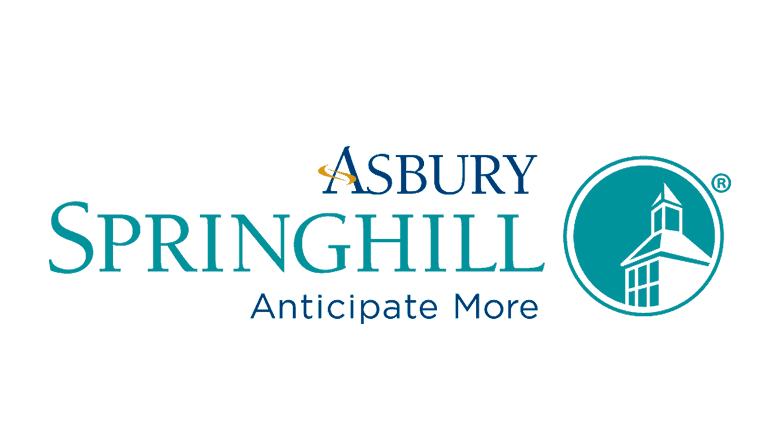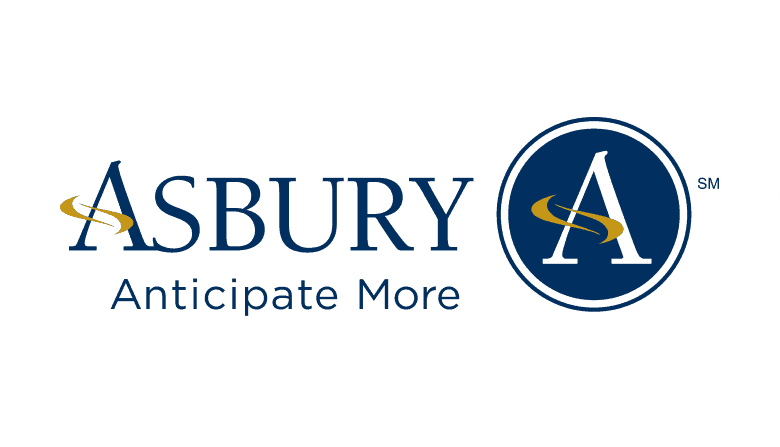Springhill Frequently Asked Questions
What Is a CCRC?
Will I be able to deduct any of my Springhill fees from my income taxes?
Springhill does not offer Type A Life Care contracts where a higher entrance fee offsets the future cost of health care services. At Springhill, residents pay for their health care services as they are needed. Because of this, the Internal Revenue Service does not recognize any part of the Entrance Fee or residential living monthly fees toward a medical deduction. However, residents receive a SARA security pendant when they move in, and there is an annual tax deduction for that. In addition, it is possible that fees paid for personal care or for skilled care services may be eligible for a medical deduction. Please see a tax analyst to learn whether your financial circumstances would allow you to deduct these expenses from your income. See our Entrance Fee page for more information about Contract Type.
Can I bring my pet to Springhill?
Many dogs and cats enjoy living at Springhill! Our campus is a great place to walk dogs and they’ll be sure to get lots of attention while they are making the rounds! Contact our sales counselors to learn more about our pet policies.
Are there age and income requirements at Springhill?
With a choice in Entrance Fee Plans, we accommodate a wide range of people aged 55+ to 60+. Before being accepted for residency at Springhill, you will be asked to show that you have enough income and assets to support your living expenses through your projected lifespan. This calculation is made through a system maintained by an outside actuary. Generally, someone with a retirement income who owns a home in the area or has equivalent assets can afford the security and benefits of the Asbury lifestyle.
Visit the Entrance Fee page under Residential Living on our website for more information, and to see residential living pricing for our Standard, Non-Refundable Entrance Fee. If you are seeking pricing for Personal Care or Skilled Nursing, please contact our Sales Team.
How does continuing care work at Springhill?
Springhill has multiple levels of care, but the large majority of residents live independently in one of numerous residence styles that include apartments and garden homes. Continuing care can actually prolong independent living, as residents avail themselves of wellness and supportive services and find it easier to stay social and involved as they continue aging. Residents may be as involved in community events and programs as they like. You are welcome to enjoy guests in your home, and many of our communities have guest accommodations on-site. If you have not watched our short “What Is a CCRC” video at the top of this page, we encourage you to do so.
If health needs change, residents have priority access to on-campus personal care, memory care, rehabilitation services, and skilled nursing and respite care. Additional health services such as pharmacy and geriatric primary care are available. On- and off-campus transportation is available to help get you to appointments. Please see our Healthcare Services for complete information about the services available on our campus.
Some couples move to Springhill with different health needs or develop health conditions during their time here that require different levels of living, such as personal care, memory care, or skilled nursing. In those cases, one spouse may choose to remain living independently while the other person moves to different neighborhood on campus.
A significant benefit of our continuum is the care coordination that residents gain from our community’s Care Navigation Team. This team jumps into action to support residents who require hospitalization or are returning home from being hospitalized, and helps them transition between different health services on campus.
What sets Springhill apart?
As part of Asbury Communities, Inc., the nation’s 14th-largest not-for-profit system of continuing care retirement communities and diversified services, Springhill has been helping older adults explore possibilities to live their best lives for close to a century. We hold strong financial reserves and our Mission is rooted firmly in our faith-based heritage and not-for-profit pledge to do all the good we can for those we serve. We are proud to hold EAGLE accreditation from the United Methodist Association of Health & Welfare Ministries. This means that an independent survey team has found us to be in compliance with a wide range of quality measures, including financial indicators that relate to our long-term viability, and we participate in re-surveys. Learn more at OurUMA.org/EAGLE.
Springhill is an open, welcoming, and affirming community for people of all cultures, beliefs, and backgrounds.
What are the health benefits of living at the Springhill CCRC?
Life at a Continuing Care Retirement Community (CCRC) has peace of mind at its core. Springhill offers levels of living from independent to personal care to long-term nursing care, which means you won’t have to change communities if you require more attention or support over time. Personal care, memory care, rehabilitation services, on-site clinics, physical, occupational and speech therapy, and pharmacy services care are all available on campus.
Well-being is integral to our lifestyle, with Springhill community’s associates and residents collaborating to develop programs that address social, emotional, physical, intellectual, environmental, spiritual, and vocational health. The Kinnections Brain Health program is a key differentiator in our well-being services. Springhill is staffed by full-time well-being professionals certified in serving older adults, as well as a brain health coach. Residents are instrumental in transforming the campus and its offerings through their unique personalities and talents. Residents remain independent while enjoying more opportunities to engage and interact both on campus and in the community beyond.
Here are Five Key Benefits of Senior Living.
What is the benefit of the Springhill continuing care retirement community?
With beautiful residences, no home maintenance and a rich calendar of classes, cultural programs, clubs and events, Springhill offers a highly engaging lifestyle designed with aging well in mind. But many residents believe the greatest benefit is having a secure plan for the future with priority access to health care, ancillary and care navigation services, and an enhanced social support network.
A critical benefit that most people don’t fully consider prior to moving to Springhill is the increased engagement the lifestyle brings. The 5-year Age Well Study recently conducted through Mather Institute and Northwestern University concluded in 2022 and confirmed that continuing care retirement communities (CCRCs) do impact senior wellness for the better. As a group, the 8,200 residents surveyed reported higher rates of satisfaction and activity than their peers in social and emotional well-being, moderate physical activity, and intellectual engagement. Read what some Asbury residents say about their decision to move.
Will I still be able to cook at Springhill?
Whether you’re someone who loves to cook or you’re ready to turn off your stove for good, Springhill has very flexible dining programs that let you choose how often you will do the work. Every residence has its own fully equipped kitchen. But residents typically enjoy connecting with friends for lunch or dinner in one of the community’s dining venues, and love the variety of freshly prepared, healthful menu choices prepared by professional chefs. Springhill residents also enjoy the convenience of accessing the community’s dining venues without going outside during the cold, winter months.
Do you offer benevolent care at Springhill?
Residents of Springhill who outlive their financial resources through no fault of their own may apply for their community’s anonymous Benevolent Care program. The Asbury Foundation is a 501(c)3 not-for-profit organization that works to secure funds for benevolent care, which may cover a range of expenses including medical, dental, housing, and more. Learn more about our benevolent care program here.
The Asbury Foundation actively seeks donations for Benevolent Care, including a special endowment fund, to offset the costs of providing this support.
Will I remain in charge of my financial assets at Springhill?
Absolutely! And many Springhill residents find that their monthly and annual financial responsibilities become much simpler. This is because you no longer have to worry about home maintenance and many of the services you pay for now are provided as part of your monthly service fee.
What does it cost to live at Springhill?
Springhill residents pay a one-time entrance fee plus a monthly services fee that covers property taxes, many utilities, security and emergency response, wellness, and many other services and amenities. Fees vary widely based on whether you choose a Refundable Entrance Fee Plan* or the Standard Non-refundable Entrance Fee Plan. If two people live in the residence, there is no additional entrance fee.
What is the purpose of the entrance fee? Even though your residence at Springhill is maintenance-free, the community itself is not. Entrance fees help provide capital funds for upkeep, enhancements, and the wide range of services that a well-run community requires. Learn more about entrance fees and the finances of CCRCs here.
See our Entrance Fee & Pricing page underneath the Residential Living tab for details. Because there are so many choices, we recommend that you meet with a sales counselor to find out which makes the most sense for you.
*Carefully read the continuing care agreement for the conditions that must be satisfied before Asbury is required to pay the Entrance Fee Refund.
Who operates Springhill and what role do residents play?
Under the direction of the Executive Director, the Springhill management team is responsible for the day-to-day operations and overall functioning. Those teams work in collaboration with Asbury Communities, Inc., which is the operator of this community and provides expertise and support in finance, human resources, clinical and legal services, marketing and communications, and strategic planning. Resident input is central to the culture of person-centered services and care here. Springhill has Resident Committees or Councils that work in collaboration with campus leadership. Seeking out feedback from residents, associates, and family members – and honoring that feedback – is embedded in community operations.
If I’m not a churchgoer, will I fit in at Springhill?
While faith plays an important role in the lives of many residents here, Springhill celebrates people of all beliefs, cultures, and backgrounds. We offer a wide range of spiritual programming, including ecumenical services. Springhill is an equal housing opportunity provider with communities that support people of all abilities. Please contact us for further details.




